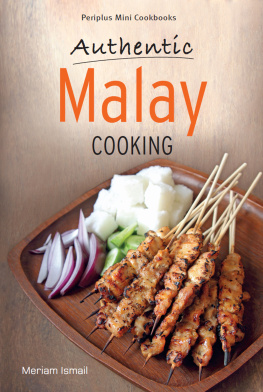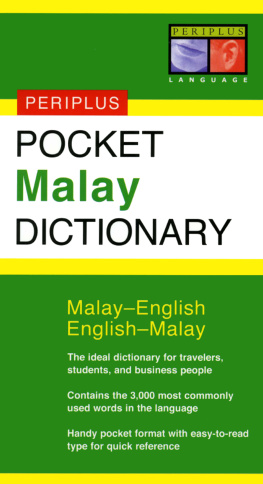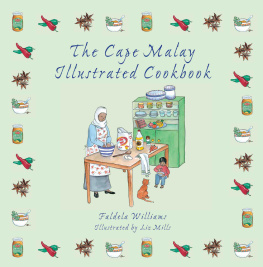LONDON SCHOOL OF ECONOMICS MONOGRAPHS ON SOCIAL ANTHROPOLOGY
Managing Editor: Charles Stafford
The Monographs on Social Anthropology were established in 1940 and aim to publish results of modern anthropological research of primary interest to specialists.
The continuation of the series was made possible by a grant in aid from the Wenner-Gren Foundation for Anthropological Research, and more recently by a further grant from the Governors of the London School of Economics and Political Science. Income from sales is returned to a revolving fund to assist further publications.
The Monographs are under the direction of an Editorial Board associated with the Department of Anthropology of the London School of Economics and Political Science.
First published in 2004 by Berg Publishers
Published 2020 by Routledge
2 Park Square, Milton Park, Abingdon, Oxon OX14 4RN
605 Third Avenue, New York, NY 10017
Routledge is an imprint of the Taylor & Francis Group, an informa business
1943 Taylor & Francis
All rights reserved. No part of this book may be reprinted or reproduced or utilised in any form or by any electronic, mechanical, or other means, now known or hereafter invented, including photocopying and recording, or in any information storage or retrieval system, without permission in writing from the publishers.
Notice:
Product or corporate names may be trademarks or registered trademarks, and are used only for identification and explanation without intent to infringe.
ISBN 13: 978-1-8452-0015-2 (hbk)
CONTENTS
MAPS AND DIAGRAMS
FIG. 1 AVERAGE WEEKLY EXPENDITURE PER FAMILY
FIG: 2 WEEKLY EXPENDITURE PER PERSON IN TEN FAMILIES (FOOD ONLY)
FIG. 3 VARIATIONS IN WEEKLY EXPENDITURE ON RICE, SNACKS AND OTHER THINGS
FIG. 4 IOH: WEEKLY BUDGET
FIG. 5 LIJO: WEEKLY BUDGET
FIG. 6 SONE: WEEKLY BUDGET
FIG. 7 SARI: WEEKLY BUDGET
FIG. 8 SERIPO: WEEKLY BUDGET
MAP 1 KELANTAN AND THE MALAY PENINSULA
MAP 2 PERUPOK VILLAGE PLAN
LIST OF PLATES
PLATE I WOMEN BRINGING RICE TO A WEDDING FEAST
PLATE II A TYPICAL PEASANTS HOUSE IN KELANTAN WITH PADI BARN ADJOINING
PLATE III A YOUNG MOTHER WITH HER YEAR-OLD SON
PLATE IV A WOMAN CHOOSING FLOWERS FOR HER HAIR IN THE MARKET
PLATE V KILLING A BULL ON HARI RAYA HAJI
PLATE VI THE DIVISION OF THE SURO CAKE AFTER COMMUNAL COOKING
PLATE VII WOMEN IN A TRENGGANU MARKET
PLATE VIII WIVES OF FISHERMEN DIVIDING THE FREE FISH AMONG MEMBERS OF THE CREW AT THE END OF THE DAY
The homely routine of housekeeping has only recently been thought fit for scientific study; yet really it is vital to the understanding of any economic system. Although conditioned by the productive possibilities and traditions of the society, consumption has an important influence on the future trends of production. For any sociological study of an economy, a knowledge of the way in which wealth is used is at least as important as a knowledge of the extent of that wealth. In fact since wealth is a concept of value, and therefore subjective, it is only from the standpoint of consumption that wealth can be measured at all. The extent to which goods are wisely distributed, stored and utilised, greatly affects the ultimate consumable value of such goods. In almost all societies, the household, whatever its composition, is an important unit in the distribution and utilization of goods. In many native and peasant societies it is the one unit through which almost the whole of the economy can be studied as a connected and functioning whole. Such a study, using the household as the unit of consumption, is nothing more than a study of the housekeeping problems of the society as they affect the whole economy.
A popular illusion about native peoples is that they have no house-keeping problems, because they either naturally eat the healthiest diet, buy in the cheapest market, and conserve their resources in the most farsighted fashion, or are so improvident and extravagant as to leave no room for rules of economic management. But the housekeepers problems are fundamentally the same the world over, and from the scientists point of view their solution is governed by the same general principles. The basic problem is universal: not only to have enough to eat to keep alive, but also to satisfy the demands of personal tastes, religious rules and a multitude of social obligations, all as important to the life of the group as mere subsistence is to the life of the organism. It is in abnormal conditions, in a beleaguered city, a ship wrecked at sea, a country at war or in revolution, that a man may begin to place a higher value on his own continued physical existence than on his social existence as a member of a group. Under such conditions only will the primary aim be to preserve life alone. In all normal conditions, the aim is to maintain ones life along with ones position in the family, the village or other social grouping. To do this, bare physical needs will sometimes be drastically curtailed, and hunger or other physical discomfort suffered for the sake of family obligations or social prestige. Hence no a priori solution of the problem of management of resources can be postulated as valid in advance of a knowledge of the institutional pattern of the particular type of society.
The degree of knowledge, skill and energy, combined with the relative valuation by the individual of personal and social needs, will determine the extent to which the problem of managing resources is efficiently solved. In different conditions, the different pulls of demand will take a different strength and direction. But the reasons which underlie this can be analysed. Different conceptions of housekeeping are not haphazard, accidental, due entirely to stupidity or avarice. They are the result of different social evaluations of money, time, leisure, hospitality, display, tradition, initiative, and a host of other considerations. The resulting pattern of behaviour, in conjunction with the level of resources determined on the productive side, results in the standard of living of a people.
There are local standards which may be more or less closely reached, but there is no absolute criterion of a universally good standard. In the west, the gradual raising of wage levels, combined with beneficent social legislation, has resulted in a real rise in the standards of living of millions of people in the industrialised countries. Unfortunately this has tended to make many people think that a similar improvement in the standards of living of people all over the world is to be brought about by adopting similar methods. Reformers in the Empire have tended to conceive the improvement of native peoples standards too much in monetary terms and the command over a more varied range of goods. But if these goods are not intelligently used, if increased money income breaks up traditional mechanisms for social services and the pooling of resources, such an increase in the financial level of income may have the reverse effect.
But it is not only in communities where money plays only a small or subsidiary part in the consumable income that a false picture of the standards of living can be given by a study concerned merely with the ostensible income level. Nor is it only external conditions, geographically determined, which can alter effective use of income. A Malay Government clerk and his Chinese counterpart, earning the same salary and working in the same area, have very different patterns of household economy. The Chinese love to eat sharks fins, which the Malay will never touch, although he will eat the flesh of that fish which no religious sanction forbids. On the other hand, the Malays avoidance of pork, beloved of the Chinese, is dictated by religious rule. A moments thought will show that these small differences in the tradition of house-keeping can be found nearer home. Why do the English never eat haggis, and more rarely oatmeal than the Scots? Why in New Zealand middle-class homes does one rarely find servants, while a man will help his wife with the washing-up, which is unusual in England? This division of labour in the home, as well as the choice of foodstuffs, vitally affects the real consumable income of the household.











